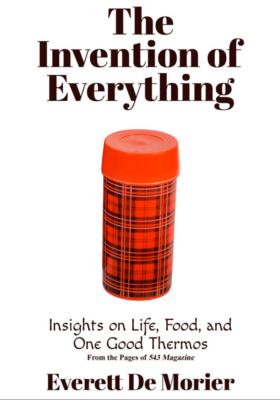Riley the Dog
There are a few things in my household that I have complete veto power over—not many, but there are a handful. For example, when my wife and children wanted pets, I said no. I felt bad about it, but the answer was no. I did not want us to be one of those “pet houses.”
Now, don’t get me wrong, pets are great: cute, fun, entertaining—I get it. But having animals means being tied down, constantly running home and feeding them or letting them out or exercising them. I wanted us to be able to travel and move around freely without having to be animal caretakers.
So, I said no. No pets.
And to their credit, my family reacted in a way that made me proud. There were no complaints from Debbie and no tears from the kids. They all took it extremely well.
And one morning—this would have been about three years later—I was feeding the cats when Debbie and the kids said that they wanted a dog.
What? A dog? No, absolutely not. No dogs. And they took it well.
Then then, about three years later, when they asked for another dog? Absolutely not. We already had a dog.
But they said a new dog would be a companion to Abby, our golden retriever. And, they added, a second dog is not much more work than a first dog. Once again, I pulled out my veto power and said no. Sorry, but no. We would not be a house with two dogs—who has two dogs anyway? That’s like having two swimming pools or two basements. Why would you have more than one?
And five years later, after Murphy died, we were back to only one dog, so . . .
Well, you get the picture. So we got Riley.
The difference between Riley and the other dogs we’ve had—two golden retrievers and a basset hound—is that Riley is a mixed-breed dog.
After having had three purebreds I have realized that all breeds are bred to do something—to hunt, to point, to herd, to show, to . . . something. And their DNA is telling them to herd, to protect, to point—first. Then, if they have some free time left over, they can be a pet.
Now, many breeds make excellent pets—it says so right in the book—but some are first and foremost bred to do something else.
Not that purebred dogs aren’t great. They are. But I prefer my mutt.
When you take out that breeding—rip out the generations of DNA that force a dog to react a certain way or be on the lookout for a specific action and strip the dog down to its basic structure—you let the dog just be a dog.
And when you get to be just a dog, you have the opportunity to see the world through a regular ol’ dog’s eyes. And frankly, dogs have it all figured out. Riley has it all figured out.
So, here is what Riley has to tell you about life:
Where you are is the place to be.
Riley doesn’t wonder if there is something better upstairs or around the corner. All he knows is that right here, right now, is where it’s at. This is the center of the universe and where he’s happy and grateful. He doesn’t regret or second-guess. This moment, this time, is the best time that there is or will ever be.
All memories are good memories.
Riley doesn’t mentally file away the times you bumped his nose when walking past him in the middle of the kitchen. He forgot how Abby got three more dog biscuits than he did and he has no clue that you could have walked him an hour earlier on Sunday but chose not to. Riley doesn’t know how to keep memories like this or what to do with them even if he did. He doesn’t understand what envy or jealousy or bitterness is, and if he did, he would abandon it. It would bore him.
As great as life is, there is always room for new people. Riley loves the people around him and is content with just them, forever. But when a new person enters his life, he reacts as if this is the first person he has ever met. Riley doesn’t treat his tenth friend as in any way less than his first friend. Everyone who enters his world is amazing, valuable, and worth getting to know. And he does not respond to people based on how they respond to him. He doesn’t care. He focuses on them, regardless of what they think about him.
And that’s what Riley wanted me to tell you.

